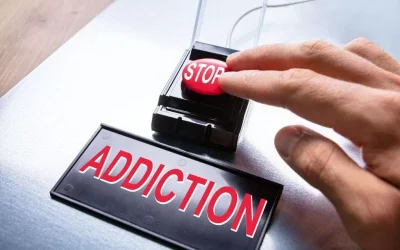Coping With Triggers in Recovery
Content
Psychological triggers, also known as cognitive addiction triggers, are negative thoughts and beliefs that can lead to relapse in recovery. These psychological triggers can involve anything from self-doubt and fear of failure to feelings of worthlessness or shame. Psychological triggers often go hand-in-hand with emotional triggers as they stem from the exact root cause – unresolved trauma or stress.
First, know that experiencing triggers in recovery is not a sign of failure. It is common for people in recovery to face triggers in their journey to wellness. Triggers may test your willpower and can be personal or shared with others in recovery. This not only helps you overcome them but may also be beneficial for examining and understanding what may have led you to substance use disorder. Self-talk is a powerful tool and a valuable coping mechanism if you encounter one of your triggers during your daily life.
Other People
After a period of poor self-care, someone in recovery will likely experience some of the mental signs of relapse. They may begin to feel discontent with their progress and restless in their disintegrating routine. Without the proper structure and routine, a person is more likely to start thinking about using again.
For instance, the death of a loved one can easily trigger a relapse in a recovering addict. Some, people struggling with drug and alcohol addiction feel as though they can’t mix and mingle without the use of substances. Internal triggers are more challenging to identify as they don’t come from the outside world, rather they come from our internal thoughts, feelings, or emotions. If you’re having a bad day, it may trigger drinking alcohol or using drugs to self-medicate. Feeling unwanted in a relationship or any aspect of life can be the source of internal triggers. Feelings of anxiety or depression can also act as internal triggers and cause poor decision-making as someone attempts to feel normal again.
Seeking Help for Addiction at North Georgia Recovery Center
Learning to identify, manage, and avoid triggers is an important part of staying sober. Combatting the ever-growing drug epidemic that this country faces begins with you. Make the most of our vast knowledge of addiction treatment and our proven https://ecosoberhouse.com/article/alcohol-and-anxiety-can-drinking-cause-panic-attacks/ ability to change lives. Take the first step towards a new, better life by giving us a call today. Inside of these main levels, the specific contribution of multiple sublevels to the addiction development and treatment have been investigated.

Meditation is a practice of focusing on quieting the mind to cultivate clarity, serenity, and insight. The triggers can be broken down into several categories, including internal and external triggers environmental, emotional, behavioral, and psychological. By knowing what common addiction triggers exist, you can better manage them and take steps to avoid relapse.
Identifying and Coping with Triggers
Triggers are a normal part of addiction recovery, but if left unchecked they can lead to a relapse. As a recovering addict or alcoholic, identifying what some of your triggers are and preparing to deal with them can help maintain long-term sobriety. The places you used to use drugs or drink alcohol carry strong memories and may cause you to linger on thoughts of using again. Whether it’s a friend’s house, a bar or club, or a particular neighborhood near your home, it’s normal to feel a need or want to return to those places. Sadness, depression, and anger can lead to relapse just as much as extreme happiness can. Some people experience cravings when they’re feeling good because they want to feel even better, while the same person may also experience cravings when they’re feeling especially down or sad.
- Negative emotions like sadness, guilt or anger are often core reasons why people begin abusing substances in the first place.
- This will not only help sober people stay sober; it will also educate those who don’t fully understand the disease of addiction.
- Stressful situations or even holiday celebrations may trigger a recovering individual.
- For many people, engaging socially and forming a support system in recovery can feel exhausting.
- Because many people begin using drugs to manage pressure, they might not know how to handle stress triggers if they haven’t developed other coping mechanisms.
Certain places, people, or things from your past can come back to haunt you in recovery, so if you feel like you want to relapse, you should meet with your treatment provider to discuss this. You may need to resume your treatment and find an alternative living situation, such as a sober living home, where you will receive ongoing sobriety support. Not everyone will relapse, but for some, it can be a part of the recovery process. To fully recover from addiction, you must modify the harmful behavioral and thought patterns in your life. If you relapse, it’s a red flag that you need to get with your doctor or treatment provider to resume treatment or modify your existing treatment plan.
People Who Influence Cravings
It may be helpful to seek help from a treatment facility to help you work through any issues or emotions that may be too overwhelming for you to handle alone. With practice and help from behavioral health professionals, the better able you will be to manage your emotions in an effective way. Therapists experienced in substance use disorders can help you identify and analyze possible triggers. Internal triggers are more emotional or psychological in nature, while external triggers come from the environment or the people around you.
However, learning the tools to cope with triggers is possible with the right support. Experiencing triggers can affect your emotional state and may increase the desire to use substances again. You might be worried that this distraction tactic might come across as rude if you’re out in public. There’s nothing rude about taking care of yourself and avoiding triggers that could lead to a relapse. Send them a text message or Facetime them until the urge to relapse passes.
Stress Triggers Relapse For Drug And Alcohol Addicts
While some triggers may create a nearly-unavoidable craving, in many situations the trigger can be removed or escaped with enough time to stop potential use. Research suggests that people who have used drugs in order to mitigate stress in the past are likely to return to this behavior when future stressors arise. This would suggest that someone in recovery could be prone to relapse due to an elevated level of stress in life.
In addition, our aftercare recovery programs offer ongoing support to those recovering from drug and alcohol addiction. They can come from sources such as our environment, relationships, work, or past experiences. It is important to understand the different types of emotional triggers and other symptoms like anxiety or stress and how they affect us to be able to best manage them. Recognizing your triggers is the only way to avoid and control the emotional and physical symptoms they bring. There are four main types of triggers people deal with; external, internal, trauma, and symptom.
Technology gives us the tools to stay connected to our support groups even if they’re not in the same time zone. It’s key to remember that these are not failures and shouldn’t be termed as such. Obstacles in recovery are often caused by insufficient coping skills or an inability to plan effectively. These issues can be fixed, and people should learn to challenge their outlook by giving equal attention to past successes.
- A creative act is necessary because resilience is not a mere adaptation to new circumstances, but implies a global personal growth (Walsh, 2002; Cicchetti, 2010).
- A relapse is when you fall back into the same habits and behaviors that you worked so hard to be rid of.
- As a result, certain cues immediately flip the switch on the association and activate the craving reflex in response to external or internal triggers in recovery.
- This ongoing fight increases their vulnerability to cravings, which may result in a potential relapse.
- But regardless of what leads a person to develop substance dependence and addiction, everyone can make the decision to take back control of their health and reach out for help.
- Keeping a trigger diary is an effective way for individuals to identify and anticipate triggers in their daily lives.


